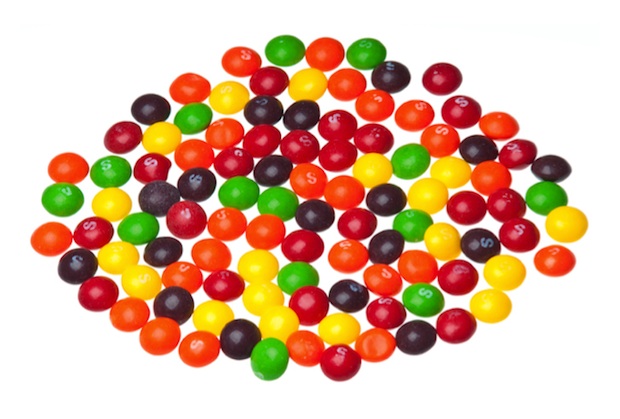Every week on The Wisdom Daily, we bring you our favorite reads from sources around the web. Topics on this week’s list include researching fairness with kids, using Skittles (yum!); a new movie, in part exploring the world of yoga; a condition that we probably all suffer from: digital hoarding; and more. Whatever’s transpiring in your life, may you find the words of wisdom you need.
1. No Fair!
“‘It wasn’t obvious that we’re just born with a sense of fairness, but everyone seems to have one. How do these different senses of fairness emerge? And do they have a common foundation or origin?, asks Peter Blake[, director of the Social Development and Learning Lab at Boston University].?To examine these questions, the scientists built a toy they call the “inequity apparatus,” or–less forbiddingly–the Skittle-ator. ‘We put kids in a situation where they’re either receiving less than a peer or more. That’s kind of what children are born into, right? They’re born into a circumstance where they have less or more than others. There are bigger questions there, about when kids really become aware of this and whether it affects the rest of their lives.'”
– Peter Blake discussing his research in “Skittle Test:?When do kids around the world say ‘no fair’?” (Futurity)
2. Stretching Yoga Beyond the Studio
“The yoga world [is] an environment which talks about peace and things happening for a reason and the importance of gratitude and feeling blessed. And that is all fantastic, but it’s also not the whole picture of our world. And it’s easy to be peaceful and feel blessed when everyone around you is like that. But… can you maintain that state of mind, and what is the correct choice, when confronted with someone who doesn’t want to sit down and have peaceful talks?”
– Diane Bell, on directing the film ‘Bleeding Hearts’ (The Mary Sue)
3. The Adventure of Learning
“The mechanism of metamorphosis is the only element of life that never changes. The journey of every individual, every country, every historical epoch–of the entire universe and all it contains–is nothing but a series of changes, at times subtle, at times deep, without which we would stand still. The moments of transition, in which something changes, constitute the backbone of all of us.”
– Jhumpa Lahiri, “Teach Yourself Italian” (The New Yorker)
4. In This Together
“Here is another right that should be intrinsic to our membership in the human community: the open acknowledgement that we all have the same needs, whether mentally damaged or not. Instead of the tragic banishment that Rosemary [Kennedy] endured, we need to be cared for and included, all of us for one another.”
– Janet Sternburg, “Two Lobotomies” (The Rumpus)
5. Delete that Mp3
“Digital hoarding is especially slippery because these days everyone does it, even if just by accident: I can happily dump pounds of clothing and books, but ask me what would happen if suddenly half my hard drive were to vanish, and I’ll need a Xanax to recover.”
– Devin Maloney, “The Invisible Weight of Digital Hoarding” (Mel)
6. Moral Evolution?
“Some psychologists and philosophers break morality into two components: sympathy, or concern for another individual; and fairness, the idea that everyone should get what they deserve. Many animals are capable of the former–a chimpanzee, for example, will behave in altruistic ways, like retrieving an out-of-reach object for another chimp–but only humans, it appears, have a sophisticated understanding of fairness.”
– Emily Esfahani Smith in “Is Human Morality a Product of Evolution?” (The Atlantic)
Here at The Wisdom Daily (TWD), we feature spiritual insights on daily life, designed to help improve and enhance our relationships with ourselves, our families and the world around us.

